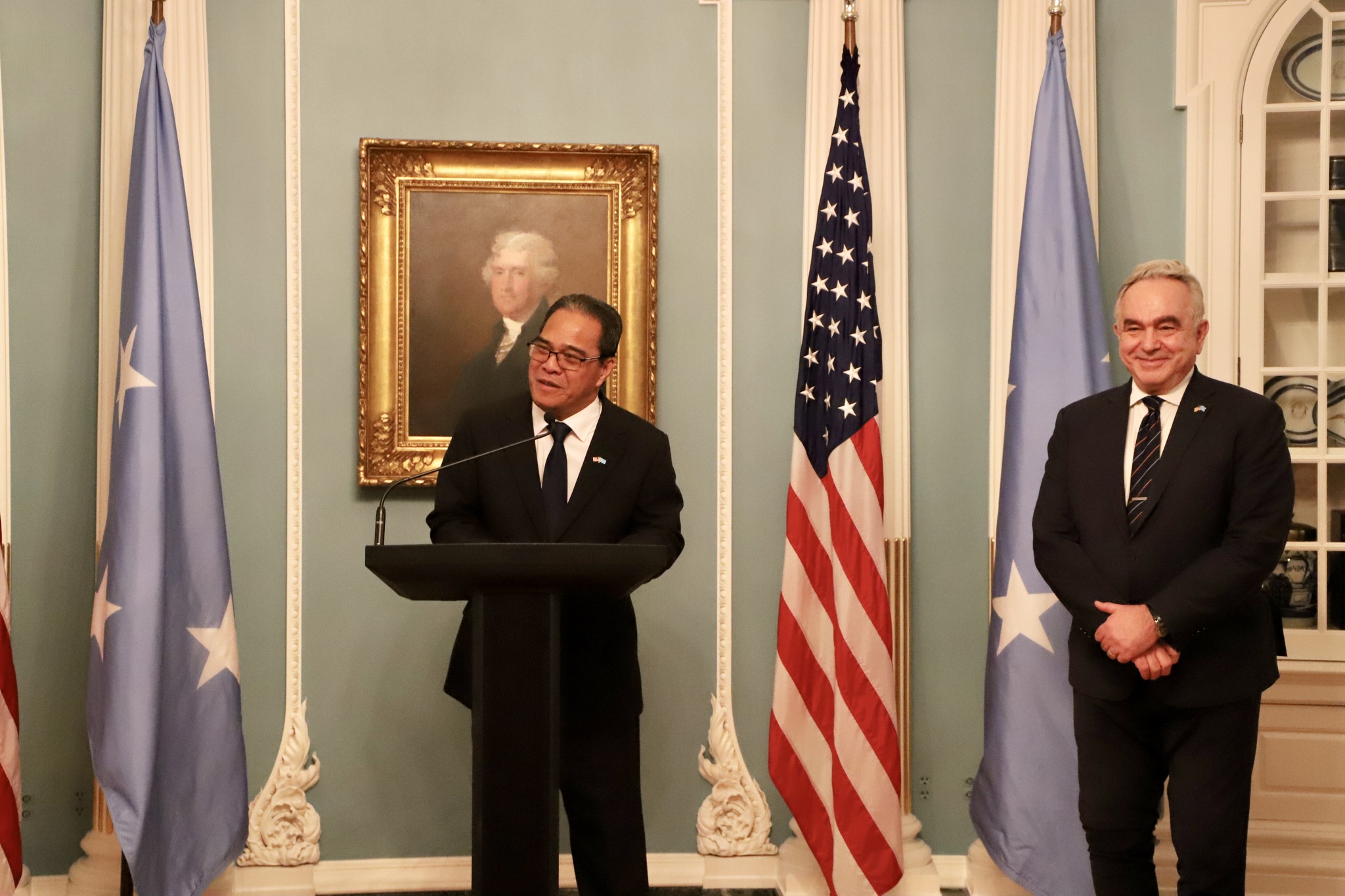Washington and the Federated States of Micronesia (FSM) have reaffirmed their defence and security ties, toasting a fresh economic package under the newly signed Compact of Free Association that cemented the United States’ foothold in the Pacific island nation.
Secretary of Defence Lloyd J. Austin III hosted FSM President Wesley Simina at the Pentagon last week to explore opportunities for new cooperation on U.S defense posture in the region, specifically training exercises in Yap, according to Major General Pat Ryder, the Pentagon’s press secretary.
“Under the Compacts of Free Association, the U.S military serves as a defence force for the freely associated states, including Micronesia, and America’s all-volunteer force draws strength from FAS citizens,” Austin said.
He said the U.S presence in the freely associated states “helps secure a vital and vast part of the Indo-Pacific.”
“Our Compact of Free Association strengthens our security and defense plans at a critical juncture in the history of our nations, in the Indo-Pacific region, and the world at large,” Simina said.
The FSM has been allocated US$3.3 billion out of the US$7.1 billion the U.S has pledged to the freely associated states, which also include Palau and the Marshall Islands, over 20 years.
The U.S funding will flow through 2043 to support basic public services, such as health, education and public infrastructure in the FSM.
“And that lasts not just for the next 20 years but beyond, because while the economic provisions of our agreements may need to be revisited in a couple of decades, our cooperation on matters of security and defense has and will always stand firm,” Simina said.
“The numbers may change but our shared values and commitment to them will continue to remain the same. This is the foundation upon which our partnership stands, as a beacon of stability and trust, enduring in perpetuity,” he added.
In exchange for economic provisions, the compact gives the U.S first dibs on FSM’s water, air space and land, thus keeping them off-limits to other foreign countries, specifically China.
Ryder said Austin and Simina discussed opportunities for military training exercises in Yap, where the U.S Air Force has plans to upgrade the existing airport.
On 18 March Simina met with Deputy Secretary of State Kurt Campbell in Washington during a ceremony that formally marked the enforcement of the COFA Amendment Act.
“President Simina highlighted the need for close collaboration in implementing the expanded benefits for the people of the FSM under the new compact, such as in the areas of veterans’ affairs and education,” according to a press release from the Office of the President.
Officials said Simina also discussed the FSM’s desire to enhance cooperation for capacity building in areas such as law enforcement cooperation through the FBI Academy, educational opportunities through the military academies, fellowships from the White House, and diplomatic training through the U.S Foreign Service Institute.
Simina and Campbell also discussed the possible return of the Peace Corps to the FSM and addressing the environmental effects of shipwrecks in Chuuk’s lagoon.
“With today’s exchange of notes, we formally embark on a new and even closer chapter of our relationship under the Compact of Free Association,” Simina said during his meeting with Campbell.
“Our teams have worked tirelessly for over four years, crafting a set of landmark agreements that advance the interests of both our countries. This is a major achievement about which we can all be proud.” he added.














